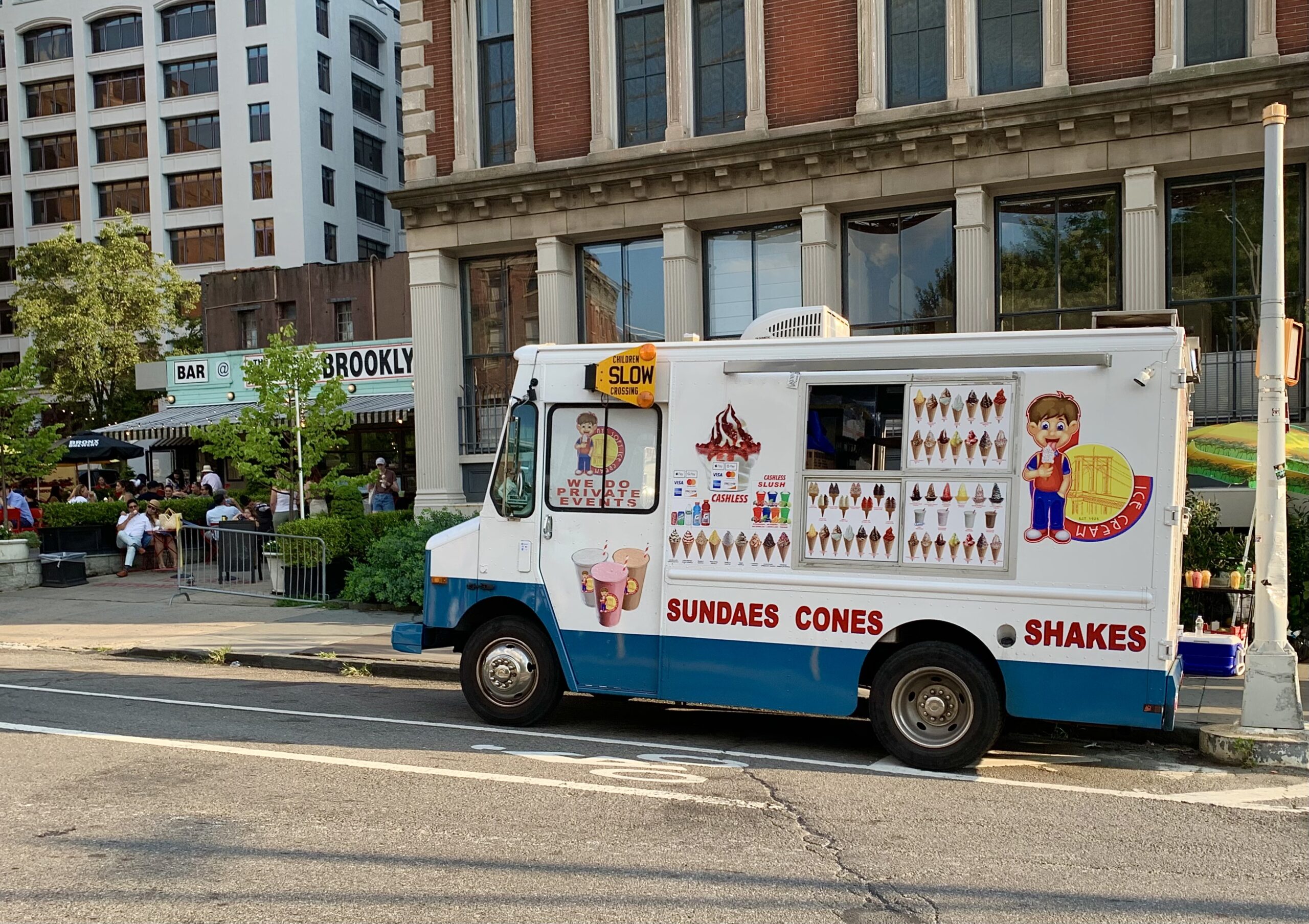Bill would require toxic ice cream trucks to convert to green power
Could be a relief to diesel-soaked DUMBO residents

They’re noisy, they’re smelly and they expose thousands of kids, residents and visitors to toxic fumes every day.
Residents in Councilmember Lincoln Restler’s district (DUMBO, Greenpoint, Brooklyn Heights) have complained for years about diesel-belching ice cream trucks. On Thursday, Restler introduced legislation requiring the trucks to switch from using fossil fuel-powered generators for their food equipment to environmentally friendly power sources, such as solar or electric generators. The truck owners would have three years to make the switch. Councilmember Gale Brewer (Upper West Side) is a primary co-sponsor.
“Our office gets hundreds of calls about ice cream truck noise, [but] it’s the gas-powered generators that most concern residents,” Restler said. “We have the technology at our disposal to electrify our ice cream trucks, and our three year timeline gives business owners enough time to make the responsible transition. I’m excited to see how they can serve as a model for electrifying mobile food truck vendors.”

Brooklyn Boro
View MoreNew York City’s most populous borough, Brooklyn, is home to nearly 2.6 million residents. If Brooklyn were an independent city it would be the fourth largest city in the United States. While Brooklyn has become the epitome of ‘cool and hip’ in recent years, for those that were born here, raised families here and improved communities over the years, Brooklyn has never been ‘uncool’.